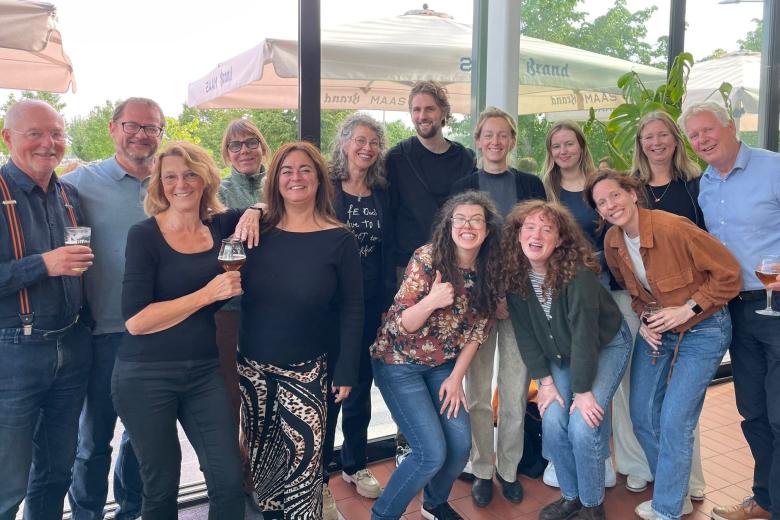Dr. Vivienne de Vogel, Professor holding an endowed chair in Forensic Care
On 1 September, Vivienne de Vogel will join the Faculty of Psychology and Neuroscience (FPN) as Professor holding an endowed chair in Forensic Mental Health Care (Forensische Zorg). A fresh face at the faculty, in the past she has given several guest lectures, but now she can officially be called an FPN’er.
Coming to Maastricht
“I am, so to say, brand new. I am familiar with the Forensic Psychology section and professor Corine de Ruiter for a long time. In 1998, I started my career, and obtained my PhD, under her supervision at the Van der Hoeven Clinic, a forensic psychiatric centre in Utrecht, Netherlands”. They have always stayed in touch and this connection has, in part, brought her to Maastricht University. “Corine and I work together a lot; we also supervise PhD students together at Maastricht University. I’ve always been impressed by her dedication and passion. When the opportunity arose to join the section, I jumped at the chance”.
CV
Then, a plan must be made. After it was written and De Vogel completed all 28 steps, it was official: on 1 September she will start in her position, for 1 day a week. She will also keep working at the Van der Hoeven Clinic, as professor of applied sciences at the research group Working with Mandated Clients at Hogeschool Utrecht, and as scientific advisor at the Adviescollege Verloftoetsing TBS.
Forensic care and psychology
De Vogel works in the field of forensic care and psychology, specifically Dutch forensic psychiatric hospitals. In these hospitals she studies how forensic mental health care can be improved. She looks at this from 3 angles: the client, the employees, and the organisation.
One example of a research question is: is it wise to place women in these clinics? “To put it crudely: there are rapists and murderers in forensic hospitals. People who have experienced a lot of trauma. Are mixed wards possible? And if yes, what is the best way of doing this?”.
Employees are also part of the research. “A lot happens in these settings: aggression, verbal and physical violence. How do you deal with this as an employee? And how can we ensure that these professionals are resilient enough to handle these situations? Especially the people doing the day-to-day care and supervision of the forensic patients”.
“The organisational factors we are going to be looking at are, for example: continuity of care: how do different branches of forensic care cooperate? What are the different legislations, financial arrangements, does everyone speak the same language?”
Also read
-
Most prestigious European grant to two UM scientists
Two Maastricht University professors are to receive the most prestigious European research grant for individual researchers: an ERC Advanced Grant, worth over €2.5 million. They are Lorenzo Moroni (MERLN) and Alexander Sack (FPN).

-
CIAO extends cooperation with UWV for four years
The Centre of Expertise for Inclusive Organisations (CIAO), under the banner of the Faculty of Psychology and Neuroscience at Maastricht University, has extended its successful cooperation with the UWV (Uitvoeringsinstituut Werknemersverzekeringen) for four years. We spoke to Gemma van Ruitenbeek...

-
Brain stimulation in people with neglect
Marij Middag (PhD Candidate) and Teresa Schuhmann (Professor of Clinical Applications of Non-invasive Brain Stimulation) from the Department of Cognitive Neuroscience at the Faculty of Psychology and Neuroscience, have recently published their paper Alpha transcranial alternating current stimulation...